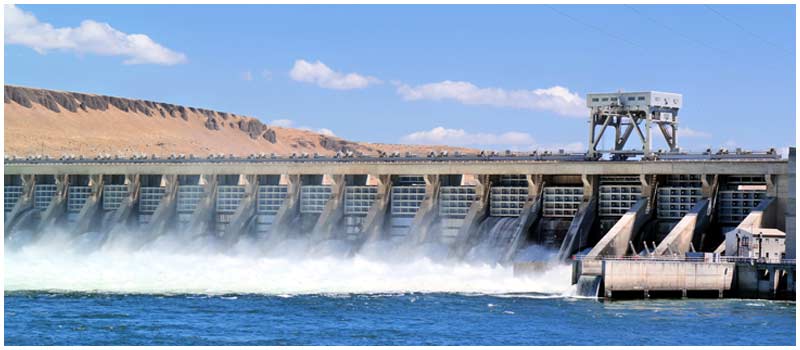Dams are said to be an important source of water supply and of high importance for various other reasons. They supply the water for various means including domestic use, irrigation purposes and also for industrial uses.
Dams are also involved in hydroelectric power generation and in river navigation. The application of these dams is much more important in daily activities including cooking, cleaning, bathing, washing, drinking water, for gardening and for cultivation purpose.

The big dams and the reservoirs also provide recreational areas for the purpose of fishing and also boating. They also cater insecurity needs of humans by reducing or preventing floods. During the times of excess flow of water, the dams store the water in the reservoir; later they release that water during the times of low flow, also when the natural flows of water are inadequate to meet the demand. When engineers design and also maintain the dams, they are keenly expected to make sure to keep all purposes in their mind.
Advantages of Dams
The advantages of dams are numerous, and that is the reason so much money and work goes into building and maintaining them. Some of the advantages are:
- Electricity is produced at a constant rate with the help of hydroelectricity or hydroelectric power.
- If there is no need for electricity, then the sluice gates can also be closed to stop the generation of electricity. Water can also be saved for future use when the demand for electricity is high hence the usage of water remains judicious.
- Dams are designed by well-qualified engineers to last several decades and also to contribute to the generation of electricity for several years or even decades to come.
- The lake or reservoir which forms behind the dam can also be used for irrigation purposes, water sports or even as other forms of pleasurable activities. A few large dams such as the Bhakra Nangal dam present in India are tourist attractions.
- When used, the electricity produced by the dams does not even generate greenhouse gases and therefore they do not pollute the atmosphere.
Also Read: List of Largest dams in India
To know more about dams and its advantages, visit BYJU’S.
Frequently Asked Questions
What is the significance of building a dam in hydropower plants?
What are the advantages of constructing dams across rivers?
a) They can store excess water, thereby preventing floods.
b) Water from the dams can be used for the irrigation of crops via a network of canals.
c) After suitable treatment, people of towns and cities get dam water through pipelines, for usage.
d) Water falling from the dams is used to generate electricity in hydropower plants.
What are some of the problems associated with the construction of dams?
a) Social problems: It makes many people homeless, by submerging large areas of human- settlements, thereby causing a social issue.
b) Environmental problems: It causes deforestation and loss of biodiversity by submerging large varieties of plants and animals. This creates an ecological imbalance.
c) Economic problems: This is an issue raised by many people who consider that the construction of dams needs a large amount of public money and there are no proportionate benefits.


Comments